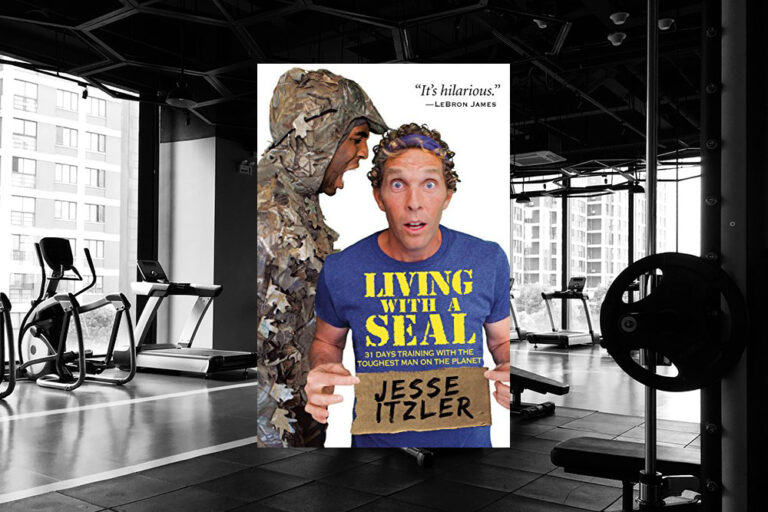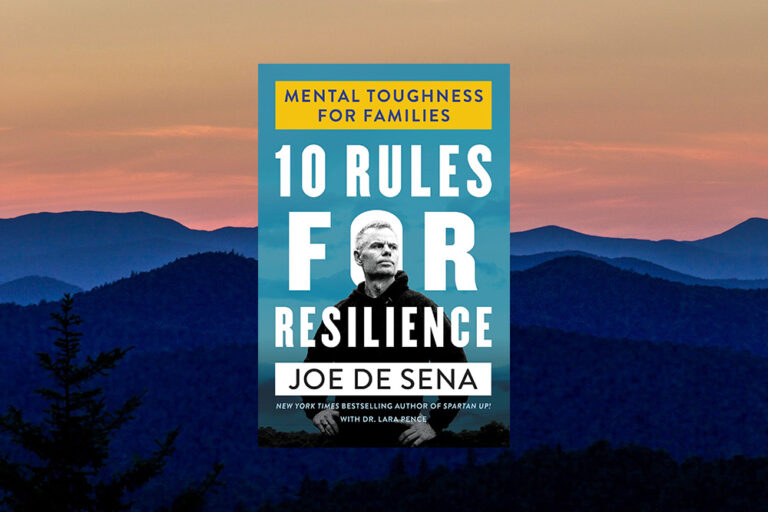#27: How to Develop Personal Accountability. Lessons From “Can’t Hurt Me” by David Goggins (Part 3)

In the third part of my notes based on David Goggins’s autobiography Can’t Hurt Me: Master Your Mind and Defy the Odds I’ll focus on an important but often overlooked topic: personal accountability.
People like to talk about setting new habits, building more self-discipline, staying out of your comfort zone, and becoming tougher. But they often forget that all these stem from personal accountability.
I define personal accountability as taking full responsibility for your current situation in life—and being honest about it with yourself.
Unless you accept that mindset, you won’t make any changes in life. Why? Because if you don’t take ownership of your problems, you’ll forever play the victim and never address them.
In the book, David shares many lessons about personal accountability. Here are the highlights with my thoughts.
(Side note: if you want even more lessons from David, I created a list of the best podcast interviews with David Goggins.)
The Accountability Mirror
The ritual was simple. I’d shave my face and scalp every night, get loud, and get real. I set goals, wrote them on Post-It notes, and tagged them to what I now call the Accountability Mirror, because each day I’d hold myself accountable to the goals I’d set. At first my goals involved shaping up my appearance and accomplishing all my chores without having to be asked.
Make your bed like you’re in the military every day!
Pull up your pants!
Shave your head every morning!
Cut the grass!
Wash all dishes!
The Accountability Mirror kept me on point from then on, and though I was still young when this strategy came through me, since then I’ve found it useful for people at any stage in life.
As he pursued his goals, David’s most important tool for cultivating personal accountability was his Accountability Mirror. Each morning he would face the Post-It notes with his objectives and have an honest conversation about his progress (or lack thereof). This simple strategy is a brilliant way to start each day holding yourself accountable.
But what I wanted to emphasize in this section are David’s initial steps. He didn’t start with huge goals but instead opted for the fundamentals.
An average man looking to change himself, upon reading a book like Can’t Hurt Me, may be tempted to immediately set big goals. The problem is that when you’re starting from zero, you most likely don’t have the foundations.
If you can’t trust yourself with taking care of little everyday things, how are you supposed to pursue more important goals?
If you let dirty dishes marinate for weeks, how do you think this behavior impacts your tendency to procrastinate?
If you don’t take care of your appearance, how do you think this behavior affects your chances of finding a girlfriend?
If you can’t be bothered to clean after yourself and keep your room, car or backyard tidy, do you think you’ll be able to do countless effortful things needed to achieve your big goals?
If you have zero self-discipline, start working on your personal accountability by accepting the responsibility for little things and attending to them as soon as possible. Once they no longer pose a challenge, graduate to harder jobs.
Call Yourself Out
If you don’t know shit and have never taken school seriously, then say, “I’m dumb!” Tell yourself that you need to get your ass to work because you’re falling behind in life!
If you look in the mirror and you see a fat person, don’t tell yourself that you need to lose a couple of pounds. Tell the truth. You’re fucking fat! It’s okay. Just say you’re fat if you’re fat. The dirty mirror that you see every day is going to tell you the truth every time, so why are you still lying to yourself? So you can feel better for a few minutes and stay the fucking same? If you’re fat you need to change the fact that you’re fat because it’s very fucking unhealthy. I know because I’ve been there.
If you have worked for thirty years doing the same shit you’ve hated day in and day out because you were afraid to quit and take a risk, you’ve been living like a pussy. Period, point blank. Tell yourself the truth! That you’ve wasted enough time, and that you have other dreams that will take courage to realize, so you don’t die a fucking pussy.
Call yourself out!
Nobody likes to hear the hard truth. Individually and as a culture, we avoid what we need to hear most.
Personal accountability means taking ownership of your entire life. This also includes its shitty aspects. Unless you see them for what they are—weaknesses to be addressed—you won’t be able to start changing them.
For example, if you can’t do more than 5 push-ups, the objective truth is that you’re physically weak. It’s a fact, whether you like it or not.
You can console yourself by looking for people who can do fewer push-ups but it doesn’t change the fact that you’re weak. And you won’t become strong until you accept that you’re weak. You need to own your weaknesses instead of pretending they don’t exist.
If you’re at work 12 hours a day doing a job you hate, spend entire days indoors, eat junk food all the time and lack energy, you can console yourself by pointing out that many people live like that. Perhaps they do. Perhaps it’s “normal” today.
But the objective truth is that your life is unhealthy and sucks. Until you acknowledge it, you won’t be able to change it to a more rewarding and healthier one.
Unfortunately, most men today would rather pretend they don’t have a problem (“come on, having a small beer gut isn’t a big deal”) or alternatively victimize themselves (“I’m so stressed, I need all that junk food and beer to survive”). David Goggins would call it having a shitty-ass attitude.
The only way to begin an extreme personal transformation is to throw away all the niceties. Accept that your life isn’t perfect and acknowledge the fact that you suck at certain things.
Note that being honest with yourself isn’t about beating your self-esteem to a pulp. Instead, the intention of brutal honesty is to spark a change. As David writes later in the book:
There is no more time to waste. Hours and days evaporate like creeks in the desert. That’s why it’s okay to be cruel to yourself as long as you realize you’re doing it to become better. We all need thicker skin to improve in life. Being soft when you look in the mirror isn’t going to inspire the wholesale changes we need to shift our present and open up our future.
Develop an Uncommon Mentality
No matter who you are, life will present you similar opportunities where you can prove to be uncommon. There are people in all walks of life who relish those moments, and when I see them I recognize them immediately because they are usually that motherfucker who’s all by himself. It’s the suit who’s still at the office at midnight while everyone else is at the bar, or the badass who hits the gym directly after coming off a forty-eight-hour op. She’s the wildland firefighter who instead of hitting her bedroll, sharpens her chainsaw after working a fire for twenty-four hours. That mentality is there for all of us. Man, woman, straight, gay, black, white, or purple fucking polkadot. All of us can be the person who flies all day and night only to arrive home to a filthy house, and instead of blaming family or roommates, cleans it up right then because they refuse to ignore duties undone.
Personal accountability is the starting point for personal transformation because it helps develop the mentality of a go-getter. And action is the only way to change your life. When you see a job that needs to be done, you do it because you take ownership for whatever comes your way.
You start with easy tasks but eventually progress to doing things nobody else is willing to do, even if it’s “unfair” that you have to do them (such as the person arriving home to a filthy house and cleaning it).
David notes that life will always give you opportunities to prove that you’re uncommon.
Some will come unexpectedly and test your resolve, often when you’re at your lowest. You’ll come home exhausted after work and your spouse will vent at you, testing your emotional control. Only the uncommon in such a situation are able to stay composed.
Some opportunities to prove that you’re uncommon you’ll create by yourself. For example, only an uncommon man would make time in his busy schedule to fit in a run at 4:30 am or a late night lifting session if there’s no other way to squeeze it in. Most men in such a situation would say that they don’t have time for exercise and leave it at that, never taking ownership of the problem.
When you trust yourself that you can get even the most unpleasant job done, you know that you’re capable of changing whatever needs to be changed in your life to get ahead. It’s a freeing realization that will give you immense self-confidence.
Surround Yourself With the Right People
A lot of us surround ourselves with people who speak to our desire for comfort. Who would rather treat the pain of our wounds and prevent further injury than help us callous over them and try again. We need to surround ourselves with people who will tell us what we need to hear, not what we want to hear, but at the same time not make us feel we’re up against the impossible. My mother was my biggest fan. Whenever I failed in life she was always asking me when and where I would go after it again. She never said, Well, maybe it isn’t meant to be.
Most wars are won or lost in our own heads, and when we’re in a foxhole we usually aren’t alone, and we need to be confident in the quality of the heart, mind, and dialogue of the person hunkered down with us. Because at some point we will need some empowering words to keep us focused and deadly.
Personal accountability, by definition, starts with yourself. But it doesn’t mean you can’t enlist help. Even the most exceptional individuals face doubts and may need support when they’re in low spirits.
Unfortunately, in today’s world most people prefer to rationalize their friends’ weaknesses rather than push them to callous their minds. When you’re close to quitting and you hear such well-intentioned but disastrous in the long run piece of advice, you’ll be even more likely to give up.
That’s why it’s important to surround yourself with the right people. They need to be able to tell you the hard truth, even if the truth sucks. They need to be able to see past your temporary discomfort and remind you of the bigger picture. Since our minds can be devious and come up with perfectly reasonable (but still wrong) rationalizations, sometimes we need someone to call out on our bullshit.
Surrounding yourself with people who empower you when you’re in doubt can also mean hiring a coach or a teacher who will push you to do your best in your chosen domain. You can also join communities of people who are pursuing goals similar to yours.
Pay the Price When You Cut Corners
Whenever I cut a run or swim short because I was hungry or tired, I’d always go back and beat myself down even harder. That was the only way I could manage the demons in my mind. Either way there would be suffering. I had to choose between physical suffering in the moment, and the mental anguish of wondering if that one missed pull-up, that last lap in the pool, the quarter mile I skipped on the road or trail, would end up costing me an opportunity of a lifetime. It was an easy choice. When it came to the SEALs, I wasn’t leaving anything up to chance.
David’s dedication to his goal of becoming a Navy SEAL meant that he wasn’t leaving anything up to chance. He was always pushing his limits as much as he could. On the days when his weak side got the best of him, he always made up for the lost reps or distance.
When you hold yourself accountable, you understand that in life you get back what you put in.
Cutting corners may feel good for a moment, as escaping discomfort usually does. But every shortcut increases the risk that you’ll fail to reach your goal. A person who demonstrates personal accountability is conscious of this tendency and rectifies it as soon as possible, often with a little “extra” for punishment.
If, for example, you were supposed to go a on 10k run in the morning but got lazy and completed only a 5k run, now you not only have to run the missing 5k but also add 1 km more on top as a late payment fee, if you will, on your weakness. This way, you’re not only fixing your mistake but also further reinforcing the fact that you need to pay for the consequences of your actions.
Questions to Ponder
1. Do you hold yourself accountable for everyday chores and other seemingly insignificant, yet fundamental activities that require self-discipline?
2. Are you honest with yourself about your life situation and the problems and weaknesses you’re facing?
3. Do you trust yourself that you can get the necessary—even if uncomfortable or painful—job done to progress in life? If not, why and how can you change it?
4. Do your friends and family speak to your desire for comfort or inspire you to push your limits and expand your life?
5. Do you hold yourself accountable by making up for your weaknesses?
If you want more advice on how to develop personal accountability, sign up for a free weekly Discomfort Club newsletter. Enter your email address below:





